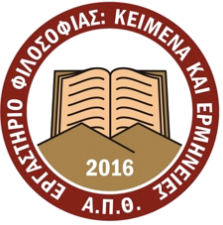Should Mohist views on politics be considered as part of the philosophical canon?
Georgios Steiris (National and Kapodistrian University of Athens)
Abstract
Mozi (5th century BC), one of the seminal figures of classical Chinese intellectual civilization. He and his followers, the Mohists, formulated China’s first explicit ethical and political theories and advanced the world’s earliest form of consequentialism. A large part of their writings is dedicated to a discussion of social life and political phenomena. However, in most of histories of political thought or of political philosophy there is no chapter dedicated to the Mohists. In this paper I attempt to scrutinize Mohist views on politics and to provide some thoughts on the question whether they should be considered as part of the philosophical canon. Moreover, I would like to argue that Mohist political philosophy flows out of and forms an integral part of a larger philosophical system.
Georgios Steiris is Professor of Medieval and Renaissance Philosophy at the Department of Philosophy of the National and Kapodistrian University of Athens. He previously taught at the University of Peloponnese, the Hellenic Open University. He has been Visiting Professor at Jyväskylä University (Finland) and Visiting Fellow at Bogazici University (Turkey). He has served as Secretary-General of the Greek Philosophical Society (2015– 2016). He was awarded the Golden Jubilee Medal ‘80 years of Al- Farabi Kazakh National University’. He co-edited the volume Maximus the Confessor as a European Philosopher (Wipf & Stock, 2017) and the Oxford Handbook for Dionysius the Areopagite (Oxford University Press, 2022).

